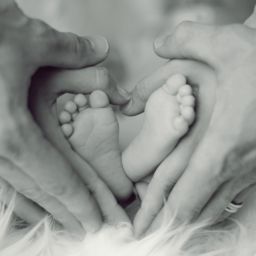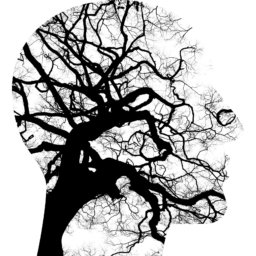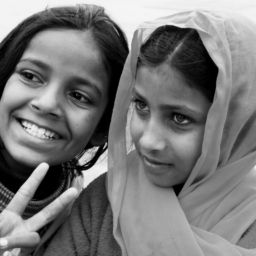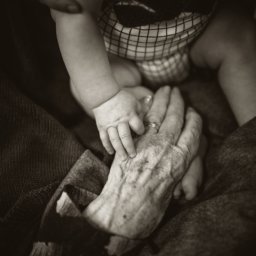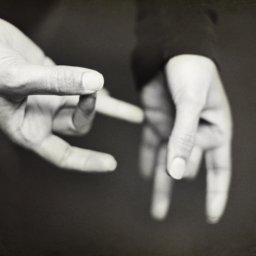India, racism, gori
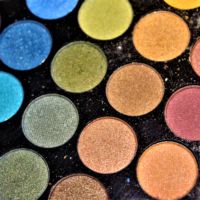
My grandmother is usually the most excited person to greet me when I reach my home village.
“Oh, look how gori she is!” she will shout down the hallway, making sure the windows are open so that the neighbours can hear. This is a phrase I hear again and again from friends, relatives and complete strangers. It will be the first thing they say to me and smile in admiration.
“She’s picked up her complexion from the Britishers,” they will remark and I can never tell if they are joking.
‘Gori’ is the Hindi word for ‘white’ or ‘fair-skinned.’ It is used as a compliment for both men and women. The opposite is the word ‘khali’ which means ‘dark skinned.’ This is commonly used as an insult or to describe a negative aspect of an individual e.g. ‘Yes she’s very clever but she’s so khali.’
Every friend and relative I visit in the country, no matter what their gender or their age will use these words as part of day-to-day language. It is as common as describing someone as ‘nice’ or ‘horrible.’ It is a meaningful part of the language, for how can you marry someone if you don’t know the colour of their skin? Who cares if they’ve worked hard and have a lovely heart – they might be khali!
If you ever get the chance to watch an Indian TV channel, wait until the adverts come on to get a true taste of Indian society. You will come across one of many makeup adverts or perhaps a company selling their luscious lotions. Whatever it may be, the company’s selling point will that it will make you ‘gori’ and therefore beautiful. If you put on their make-up you will be surrounded by equally gori friends with an even more gori husband with children so gori they will probably look like paper sheets. To top it off this gori-ness will be illustrated by a model who has been airbrushed to the extreme so that her pale skin glows across the screen.
India, racism, gori, culture

We are obsessed with Western culture in India. We want to be them. We want to be white with straight, yellow hair stopping sharply just above our shoulder blades, our eyes shining blue in the sunlight. We want to show off our majestic bodies in trousers too tight and tops too low. We want our mouths to enunciate Anglo-Saxon words as if we were brought up within the confines of a typical boarding school. Britain is still in the hearts and minds of India’s civilisation.
This obsession with gori is exemplified by the typical Western tourist who visits India and lands at Delhi Airport ready to see the sights. They will leave the international airport to the sweltering heat and musky air, already spluttering into a handkerchief. And as they look up to try and find a taxi they will see several eyes looking back. ‘I probably look jetlagged’ they’ll think and continue on their way. As they walk down the street shopkeepers will stop their chatter to turn and stare. Drivers will unwind their windows and slow down to watch the slim frame with that oh-so-beautiful blonde hair walking down the road.
Some of you may have witnessed this or even experienced it first hand. Others may have experienced this when travelling to the rural parts of a developing country where the concept of an individual with a skin colour different from their own is alien to them.
But surely that can’t be true of Delhi – the capital of India? Where millions of tourists flock to each year?
No, people do not stare out of surprise or interest. They stare out of desire. That’s how gori I want to be. For to be gori is more than just to look beautiful. It is to be rich, to eat well and live well. It is to have the money to travel to another country, to have the luxury of leaving the house and going to work everyday, to be able to live one’s life beyond retirement and to enjoy life in all of its offerings. To be gori is to have an advantage in life.
Here lies the final remnant of British colonialism. It is not just in our railways or our tourist buildings or in our school systems. It is in our very hearts and minds.
My most pressing memory of this obsession with colour comes from when I was just seven years old. I was staying with my cousin who was the same age as me and we got on well. By that time globalism had reached the point where she had access to all the same media that I did and we would obsess over the same actors and musicians. We would discuss our favourite TV programs and artists we wanted to see live. We would share stories and express surprise at the different lives we each led. I could not imagine having to climb a mountain side or trudge across farmland to get to school everyday. Nor did I have to bring a handkerchief with me every time I left my house because of the heaving traffic and smog in the air. My cousin, on the other hand could not dream of a world where kids actually went outside to play after school and didn’t spend hours doing homework, or where women could leave their house whenever they felt like it.
My cousin was (and still is) very artistic and dreamed of becoming a Fashion Designer. Her notebook was filled with drawings of beautiful dresses which flowed across the pages; I used to sit and watch in awe as her hand would glide with such precision, filling in shadows and creating worlds of her own upon that small piece of paper.
“Will you model them as well?” I asked.
Before my cousin could answer her own mother (my Aunt) started laughing. She was lying on the couch just opposite us doing her nails.
“How can she model? Have you seen how khali she is?” said my Aunt without looking up.
Nothing more was said and my Aunt continued to stare at her hands, held up high towards the ceiling like an offering to God. I looked back at my cousin. By now I had heard such words being used many times before but never to describe someone while they were sitting right next to them. To me it was like insulting someone in front of their face – and from their mother as well!
It was only when I saw the calm expression on my cousin’s face that I realised how much I had yet to understand. These words weren’t used as compliments or insults. They were used to describe who people were. They weren’t seen as words to use when talking about someone behind their back; they were words that were bandied about in the open. If you were khali, well that was like being poor or not being very smart. Sure, things might change; my cousin could try some of that make-up advertised on TV to make herself appear a little bit lighter – but ultimately being khali would most likely define the career she would go into and the life she would lead. But being khali went even deeper; it meant that you as a person were in some way deficient. It meant that you would have difficulty going into a relationship, would marry someone who was just as khali (and therefore not successful) and that your life would in some way be ‘inferior’ to those more gori than you. You would live your life differently and your successes would never be as great as those who were more fair-skinned. To be gori was to be better in every way.
Racism? What Racism?
This is a difficult concept for many of us to get our heads around. Ignoring the racist element (which makes up a big part) most of us do not see the world through the lens of superior vs inferior. We are encouraged to see the world as fair; everyone should have an equal opportunity in life. Not being discriminated against based on our gender, age or ethnicity is something we should not even have to say out loud: it is a basic right.
But in India things were (and still are) different. Unfortunately people are still judged based on their age or gender or status in society but these things appear to be changing. The issue of gender discrimination has only recently been highlighted in the media and the difficulties that women face in India are now being discussed out in the open. The issue of discrimination based on skin colour – gori vs khali – is that there is no issue. It is not talked about because there is nothing to talk about: it’s just how things are. One wouldn’t question why children have to go to school everyday (surely it’s obvious) or why we use money to buy food. The assumption of hierarchy based on skin colour is viewed with similar conviction; it’s just how things are and there’s nothing more to it. For that is how the world is framed in many people’s eyes; those who are above you and those who are beneath.
I no longer visit India anymore. There were many reasons; the culture differences, the travel, the expense, but the main reason was this debacle of khali vs gori. I would spend 2-3 months in India every year during which I would stay at a relatives house, eat their food, meet their friends and immerse myself in their lives. As a result, this was a frustration I could not get out off. I tried arguing; my relatives could not see the problem. I tried reasoning; my friends suggested it was just a different way of seeing the world. In the end I did nothing but watch – what else could I do?
Yet as the conversations continued – as young girls told me they couldn’t study what they wanted because they were khali and adult men laughed at the idea of marrying a woman who was khali – as the value of a life was measured by the pigment of one’s skin, I realised I could not return. To do so was to betray my own values.
But the question still remains in my mind. I play with it in the late hours of the evening, thinking of a future where such articles did not have to be written.
How do you end discrimination when there is no concept of it in the first place?
